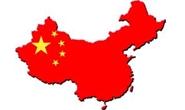Market Segment

July 19, 2016
China Opens Free Trade Zones to Foreign Investment
Written by Sandy Williams
China’s State Council announced today that it will relax regulations to allow foreign companies to set up wholly-owned steel manufacturing units in four pilot free trade zones.
According to a posting on the Central government website, foreign firms will no longer be subject to certain qualification requirements and stake control restrictions when investing in the Chinese steel industry. The zones are in the municipalities of Shanghai and Tianjin and the provinces of Guangdong and Fujian provinces.
“The ban on foreign controlling shareholding and qualification hurdles imposed on foreign investors will be cancelled temporarily,” said a circular released on July 19. “The establishment of foreign wholly-owned steel manufacturing firms will be allowed.”
The change follows talks with the EU in Beijing that emphasized the need to address industrial overcapacity before granting market economy status to China.
“The move is another step in China’s reforms to open up its domestic market and to support free trade zone development,” said Liao Qun, China chief economist at Citic Bank International in Hong Kong.
“As for the timing, it will help ease the pressure of RMB depreciation and capital outflows since the adjusted measures will encourage more foreign investment in China,” Mr. Liao said.
Foreign firms will be required to comply with government restrictions designed to limit new capacity by investing in old mills, revamp projects or create new plants while shutting down equivalent capacity outdated facilities.
“Ultimately China wants to attract foreign investment to set up highly efficient firms to produce higher-end steel products,” said Argonaut Securities metals and mining analyst Helen Lau. “… this could help force Chinese firms to become more competitive and drive badly needed industry consolidation.”
Lau added that land restrictions in the four pilot free trade zones would suggest that foreign firms are more likely to set up high-end processed products like steel alloys instead of general products that require more space.







